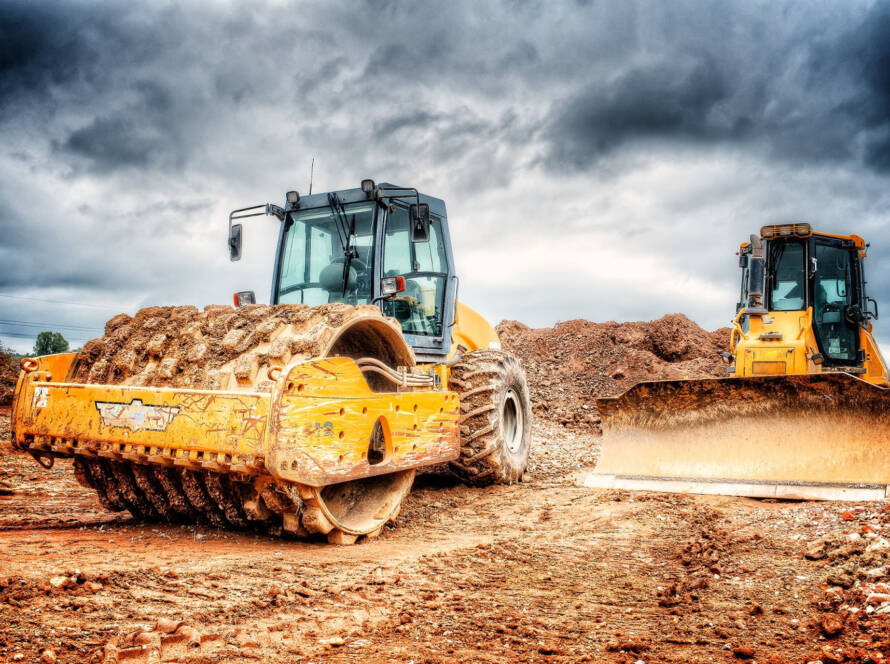Earthwork is a fundamental aspect of construction, involving the movement and processing of soil and rock to create a suitable foundation for various structures. From building foundations to roadways and landscaping, earthwork plays a crucial role in ensuring stability and longevity. Understanding what earthwork entails is essential for anyone involved in the construction industry.
The Basics of Earthwork
Earthwork refers to the process of excavating, moving, and placing soil or rock to form a desired shape and level for construction purposes. This involves several key activities, including excavation, grading, and filling. The goal is to prepare the site for the construction of buildings, roads, bridges, and other infrastructure projects.
Types of Earthwork
There are several types of earthwork, each serving a specific purpose in construction:
1. Excavation
Excavation involves the removal of soil or rock from a site to create a cavity or trench. This is often the first step in construction projects, such as foundations for buildings, basements, and utility trenches. Excavation requires careful planning and execution to ensure safety and stability.
2. Grading
Grading is the process of leveling and smoothing the soil surface to achieve the desired slope and elevation. Proper grading ensures adequate drainage, prevents erosion, and provides a stable base for construction. It is essential for projects like roads, driveways, and landscaping.
3. Filling
Filling involves adding soil or other materials to raise the ground level or fill voids created during excavation. This is crucial for creating a solid foundation and achieving the desired site elevation. Common materials used for filling include gravel, sand, and compacted soil.
4. Trenching
Trenching is the process of digging narrow and deep excavations for installing utilities, such as water pipes, electrical conduits, and sewer lines. Trenches must be carefully planned and supported to prevent collapse and ensure safe installation.
Importance of Earthwork in Construction
Earthwork is vital for several reasons:
1. Foundation Preparation
A stable and well-prepared foundation is essential for any construction project. Earthwork ensures that the ground is properly leveled, compacted, and capable of supporting the weight of the structure. Without proper earthwork, buildings and infrastructure are at risk of settling, shifting, or collapsing.
2. Drainage and Erosion Control
Proper grading and soil management are crucial for effective drainage and erosion control. Earthwork helps direct water away from structures, preventing water damage and soil erosion. This is especially important in regions prone to heavy rainfall or flooding.
3. Safety and Stability
Earthwork provides a safe and stable work environment for construction activities. By removing obstacles, leveling the ground, and creating stable slopes, earthwork minimizes the risk of accidents and ensures the safety of workers and equipment.
Earthwork Equipment and Techniques
Various equipment and techniques are used in earthwork to achieve the desired results efficiently and safely:
1. Excavators
Excavators are versatile machines equipped with a bucket and arm for digging and moving soil. They are used for excavation, trenching, and material handling. Different types of excavators, such as hydraulic and crawler excavators, are chosen based on the project’s requirements.
2. Bulldozers
Bulldozers are powerful machines with a large blade in front, used for pushing and leveling soil. They are ideal for grading and clearing large areas quickly. Bulldozers come in various sizes, depending on the scope of the project.
3. Loaders
Loaders are used for loading and transporting soil, gravel, and other materials. They have a front-mounted bucket that can scoop and lift heavy loads. Loaders are essential for moving materials on construction sites.
4. Compactors
Compactors are used to compress and stabilize soil to increase its density and load-bearing capacity. They come in various forms, including plate compactors, roller compactors, and tamping rammers, each suitable for different soil types and project requirements.
Planning and Execution of Earthwork
Proper planning and execution are crucial for successful earthwork:
1. Site Survey and Analysis
A thorough site survey and analysis are essential to understand the soil conditions, topography, and potential challenges. This information helps in designing an effective earthwork plan.
2. Environmental Considerations
Environmental factors, such as soil erosion, drainage, and vegetation, must be considered to minimize the impact on the surrounding area. Implementing erosion control measures and protecting natural habitats are important aspects of earthwork.
3. Safety Measures
Safety is paramount in earthwork projects. Proper training, use of protective equipment, and adherence to safety guidelines are essential to prevent accidents and injuries on the construction site.
Conclusion
Earthwork is a critical component of construction, laying the foundation for successful projects. From excavation and grading to filling and trenching, each aspect of earthwork requires careful planning, skilled execution, and the right equipment. For professional earthwork services in New Zealand, consider partnering with Rock Solid Worx, experts in excavating, earthwork, and concrete solutions. With their expertise and commitment to quality, you can ensure your construction projects are built on a solid and stable foundation.



